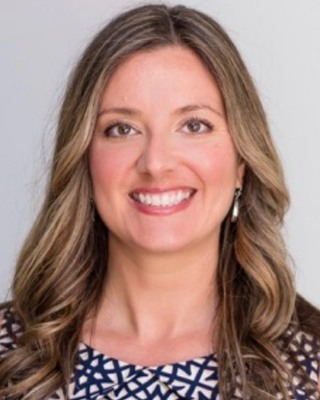The beauty industry is undergoing a profound transformation as consumers, brands, and makeup artists increasingly prioritize sustainability alongside performance. This shift is not merely a passing trend but a fundamental reimagining of how beauty products are formulated, packaged, and used. At Pivot Method, we've embraced sustainable practices and products, and we're excited to share insights about this important evolution in our industry.
The Environmental Impact of Traditional Beauty
Before exploring sustainable alternatives, it's important to understand the environmental challenges posed by conventional beauty products:
- Packaging waste: The beauty industry produces over 120 billion units of packaging annually, most of which ends up in landfills or oceans. Conventional packaging often combines multiple materials that are difficult or impossible to recycle.
- Water intensity: Traditional formulations can contain up to 95% water, increasing product weight and transportation emissions while using a precious resource.
- Ingredient sourcing: Many conventional ingredients are petroleum-derived or sourced through environmentally harmful practices that contribute to deforestation, habitat destruction, and pollution.
- Microplastics: Many beauty products contain microplastics that eventually make their way into waterways and the food chain.
- Chemical impact: Certain ingredients like oxybenzone (in sunscreens) and silicones can harm aquatic ecosystems when washed down drains.
The New Wave of Sustainable Beauty Innovations
Fortunately, the beauty industry is responding with remarkable innovations that maintain or even improve product performance while dramatically reducing environmental impact:
Packaging Revolution
Sustainable packaging has evolved well beyond simple recycled materials:
- Refillable systems: Brands are creating durable outer packaging with replaceable inner products, reducing waste by up to 70%.
- Biodegradable materials: Packaging made from seaweed, mushroom mycelium, and agricultural waste breaks down naturally after disposal.
- Plastic-free alternatives: Bamboo, glass, aluminum, and paper packaging offer recyclable or compostable options.
- Zero-waste solids: Solid formulations like shampoo bars, cleansing balms, and powder-to-foam products eliminate the need for plastic containers entirely.
- Minimalist design: Removing unnecessary packaging elements like outer boxes and plastic windows reduces material use.
Waterless Formulations
Water-free or low-water products offer multiple sustainability benefits:
- Concentrated products: Without water dilution, products last longer, reducing packaging and transportation emissions.
- Preservative reduction: Waterless formulas often require fewer preservatives, allowing for cleaner ingredient lists.
- Innovative formats: Powder foundations, solid serums, and concentrated oil-based products perform exceptionally well while reducing environmental impact.
- Lower shipping weight: Lighter products mean less fuel used in transportation.
Ethical Sourcing and Fair Trade
Sustainable beauty extends beyond environmental considerations to include ethical sourcing practices:
- Regenerative agriculture: Ingredients grown using practices that restore soil health and biodiversity.
- Fair trade partnerships: Ensuring harvesters and producers receive equitable compensation and safe working conditions.
- Transparent supply chains: Full traceability from source to shelf helps consumers make informed choices.
- Indigenous wisdom: Collaborating with and compensating indigenous communities when using their traditional botanical knowledge.
Multi-Functional Products
Products that serve multiple purposes reduce overall consumption:
- Tinted moisturizers with SPF: Combining skincare, sun protection, and light coverage.
- Lip and cheek tints: One product for multiple applications reduces the need for separate items.
- Treatment-infused color products: Makeup with active skincare ingredients that provide benefits beyond color.
Clean vs. Sustainable: Understanding the Difference
Many consumers confuse "clean" beauty with sustainability, but they represent different (though sometimes overlapping) concepts:
- Clean beauty primarily focuses on ingredient safety for human health, avoiding certain controversial ingredients like parabens, phthalates, and sulfates.
- Sustainable beauty centers on environmental impact across the entire product lifecycle, from sourcing through disposal.
It's important to note that some "clean" products may actually have a larger environmental footprint than their conventional counterparts, especially if they require more frequent replacement or have resource-intensive ingredients. The most responsible products consider both human and environmental health.
Certifications: Navigating Sustainability Claims
With increasing "greenwashing" in the beauty industry, third-party certifications help identify truly sustainable options:
- Cradle to Cradle: Evaluates products across five sustainability categories, including material health and recyclability.
- EWG Verified: Products free from ingredients of concern according to the Environmental Working Group's criteria.
- Leaping Bunny: Certifies cruelty-free products not tested on animals.
- USDA Organic: Ingredients grown without synthetic pesticides or fertilizers.
- B Corp: Companies meeting high standards of social and environmental performance.
Professional Makeup Artists and Sustainability
As visagistes, we have a unique opportunity to influence sustainable beauty practices:
- Sustainable kit organization: Using refillable palettes, reusable applicators, and compostable disposables.
- Product curation: Selecting brands with strong environmental commitments.
- Application techniques: Using methods that maximize product lifespan and minimize waste.
- Client education: Sharing sustainable beauty knowledge with clients interested in reducing their environmental impact.
Our Commitment at Pivot Method
At Pivot Method, we're constantly evolving our practices to reduce environmental impact while maintaining the exceptional quality our clients expect. Our sustainability initiatives include:
- Curating a professional kit that prioritizes refillable, plastic-free, and multi-use products
- Using biodegradable and reusable tools wherever possible
- Educating clients about product longevity and proper disposal
- Partnering with brands that demonstrate genuine commitment to environmental stewardship
The Future of Sustainable Beauty
Looking ahead, we anticipate even more transformative innovations in sustainable beauty:
- Biotech ingredients: Lab-created alternatives to environmentally intensive ingredients that offer identical or superior performance.
- Circular beauty: Systems that recapture and reuse packaging materials in closed loops.
- Carbon-negative formulations: Products that actually remove more carbon from the atmosphere than their production creates.
- Digital try-on technology: Reducing product waste through virtual testing before purchase.
The beauty industry's sustainability journey is still evolving, but the progress made in recent years gives us tremendous hope. By making thoughtful choices as professionals and consumers, we can enjoy beautiful makeup while contributing to a healthier planet. After all, true beauty should never come at the expense of our environment.





